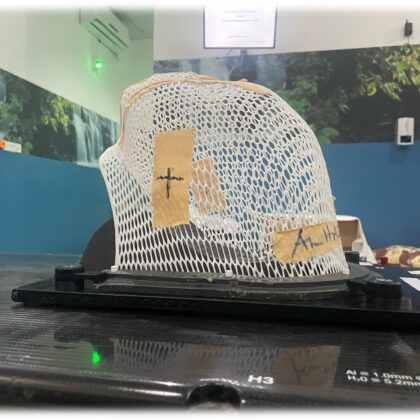Do you know your capacity from your consent?
Few researchers have looked at the consent processes for patients who require radiotherapy treatment but are considered to lack the mental capacity to consent for themselves and no published research has identified the education practices surrounding consent and capacity for therapeutic radiographers working in radiotherapy departments. This research provides the UK context for both. As part of my MSc dissertation a survey evaluation was sent to all radiotherapy departments in the UK asking an appropriate therapeutic radiographer to answer a short survey in 3 sections:
- General consent
- Departmental practices for those patients who are considered to lack the mental capacity to consent
- Therapeutic radiographer education and training
Results demonstrated that clinician and/or health professional judgement were the most frequent methods used to determine if a patient had the capacity to consent for their radiotherapy treatment compared with more formal capacity assessment tools. Free text comments identified time constraints and competence with using formal capacity assessment tools. The Mental Capacity Act (MCA) 2005 state that a person is unable to make a decision for themselves if they are unable to do one of the following things:
- Understand information given to them
- Retain that information long enough to be able to make the decision
- Weigh up the information available to make the decision
- Communicate their decision – this could be by talking, using sign language or even simple muscle movements such as blinking an eye or squeezing a hand.
Good practice indicates that friends/carers of that patient should also be involved in the decision-making process plus other health care professionals/clinicians as needed with the outcome recorded on a separate ‘best interests’ consent form. Results of the research demonstrated these processes were being followed in many departments within the UK, fully inclusive of the guidance with the patient at the heart of the decision-making process. Nevertheless, some departments reported practices that did not utilise a separate consent form for those who lacked the capacity to consent.
Education and training varied across the UK with 42% of departments that responded identifying that therapy radiographers do not undergo any training in consent processes. For those departments that have education and training in place for consent and capacity there was no consistency in the frequency that therapy radiographers underwent training; some departments ensuring mandatory annual training with other departments reporting their training as optional. The departments who did not have separate consent forms for those who lack capacity did not have any training in consent and capacity for therapy radiographers.
Many therapy radiographers do not routinely obtain consent; but understanding the importance of consent and having due regard for capacity is set out in our standard of proficiency for radiographers and something I am passionate about. If we really think about it, for a patient having a course of radiotherapy treatment after confirmation of consent is completed at fraction one, we identify the patients implied consent for every subsequent treatment as they lie down on the treatment couch. We also are effectively assessing their capacity, having the appropriate knowledge and understanding in this area is essential to give not only excellent care to our patients but meet our standards of proficiency. Following the outcomes of this research, I am currently working on specialist consent and capacity awareness training for therapy radiographers using clinical reasoning trees utilising my clinical experiences and the experiences of other therapeutic radiographers. I will be presenting this work at the Annual Cancer Care Conference, Liverpool in October.
The paper ‘Departmental practice on informed consent in radiotherapy departments: a UK evaluation‘, is available as part of the Journal of Radiotherapy in Practice Editors’ Choice collection.





